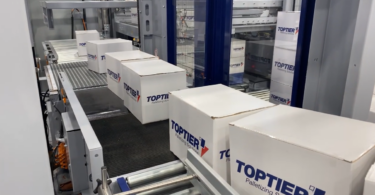A guide to understanding PVC and PUR cables and the terminology relevant to each
**Updated in August 2021**
When should you use PUR cables versus PVC cables? Does the cable need to be halogen-free? No matter what application you are working with–from robotics to metal cutting to packaging–the answers to these questions are significant, because an entire system is only as good as the weakest component. It is therefore crucial to understand and select quality accessories, such as cables, to ensure the overall quality of the system.
The following answers to some of the top cable questions can help you select the right cable for your application:
What’s the difference between PUR and PVC cables?
A PUR cable is a flexible, silicone, and halogen-free cable with PUR outer sheath polypropylene conductor insulation. It is oil and flame resistant and can be used in drag chain applications with minimal bend radius. PUR cables are very well suited for flexible applications in robotics, machine tools and metal cutting manufacturing.
Pure PVC cables are suitable for medium mechanical stress, for packaging machine applications as well as assembly and production lines. PVC cables have good resistance to acids and alkalis and therefore are ideally suited for use in the food and beverage industry. PVC cables have limited abrasion behavior and limited resistance to oil and chemicals.
What is bend radius?
Bend radius refers to the smallest curve that a cable may have when laid without changing the characteristics of the cable. Bend radii (Rmin) are specified in relation to the cable diameter.
What does halogen-free mean?
Cables and wires are defined as halogen-free if they are made of materials that do not contain salt forming chlorine, fluorine, bromine and iodine. The insulation and cladding of these cables are made of polymers based on pure hydrocarbons. When these materials burn, only water vapor and carbon dioxide are emitted, no corrosive or toxic gases.
The use of halogen-free cables becomes more and more compulsory with increasing numbers of buildings where safety consciousness to protect humans and valuable materials take a special significance, including hospitals, airports, hotels, theaters, schools, multistory buildings, and more.
When should I use PUR cables?
Various industries, like machinery, plant or tool-making industries, are working particularly with mineral oils, alkalis and aggressive coolant emulsions and under difficult environmental working conditions. Due to these conditions, the electrical cables must perform to exceptionally high standards. When flexibility, abrasion and oil resistance are all guaranteed, PUR cables are the way to go.
For more information, download Tips and Tricks: Passive Connectivity






